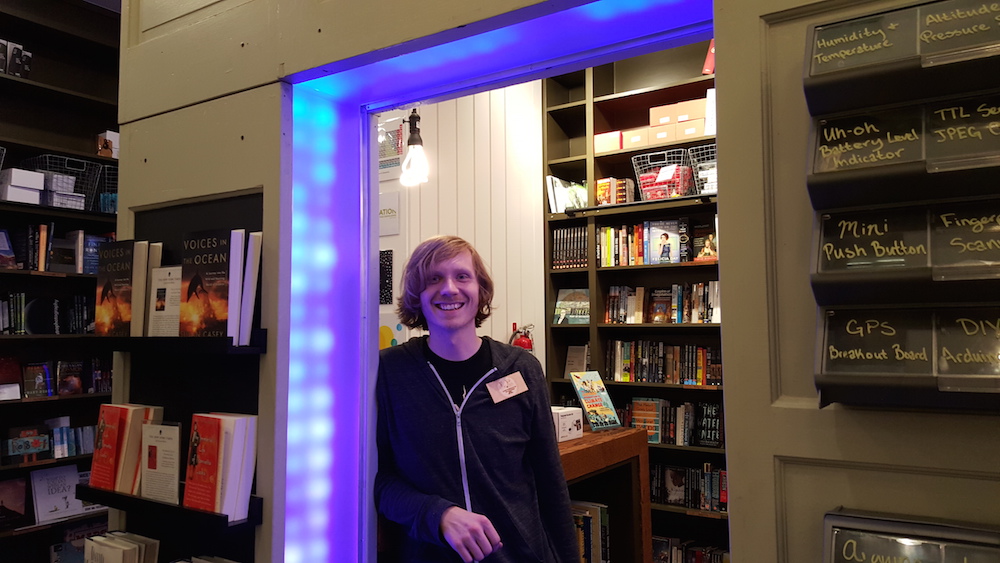The bookshelves where science and humanities meet

John Paul DeGennaro started working at Ada’s Technical Books about a year and a half ago. He had just moved back to Seattle after graduating from the University of New Hampshire as an anthropology major. He says he’d never worked in a bookstore before, though he’d always wanted to, because it appealed to his interests in science and education.
Earlier this month, DeGennaro became Ada’s new events coordinator. So what does he think makes for a great event? “We like to put on events that are learning-based. We’ve done some literary events that are great, too, but we like people to leave feeling like they’ve gained an understanding of something new.”
And what are some upcoming events that he’s looking forward to? “Thursday we have an event on the impacts of climate change on marine systems with UW professor Curtis Deutsch” to talk about increasing oceanic acidification and rising sea temperatures. And on December 10th, Ada’s will host an event by Dr. Travis Rector, author of the book Coloring the Universe, about how NASA produces such gorgeous color photographs of nebulae half a galaxy away. How do they gather such an impressive slate of oceanographers and astronomers? DeGennaro says that until now, authors have reached out to the store looking to put on events, but he’d like to be a little more proactive and “scout out some people” to put a bigger slate of readings together, too.
DeGennaro also hosts Ada’s Human Experience Book Club, a monthly “survey of non-fiction books exploring what it is like to be human.” This month’s selection is Being Wrong by Kathryn Schulz, which is about “why we think we’re right all the time even though we’re not, and why it’s important to make mistakes, and why mistakes help us both in life and as a species.” DeGennaro says he likes to use book clubs “as an introduction to a topic to then explore different ideas and hash them out in discussion context.” For instance, he says, “we read Spook by Mary Roach a couple months ago. We talked about the book, but then we used it as a way to talk about death in our culture. I like to use book clubs as an excuse to talk about broader topics.”
In the end, what drew DeGennaro to bookselling was the idea of understanding the world. He believes that “we have a problem right now in our culture where we try to separate things into as many small categories as possible,” and that we should “blend the humanities and arts and sciences back together, because they’re kind of separated right now.” This makes a place like Ada’s, where biographies and technical scientific texts and the work of Philip K. Dick share space a couple feet away from a bustling cafe, a perfect landing spot for him, a welcome intersection between science and art and the humanities.